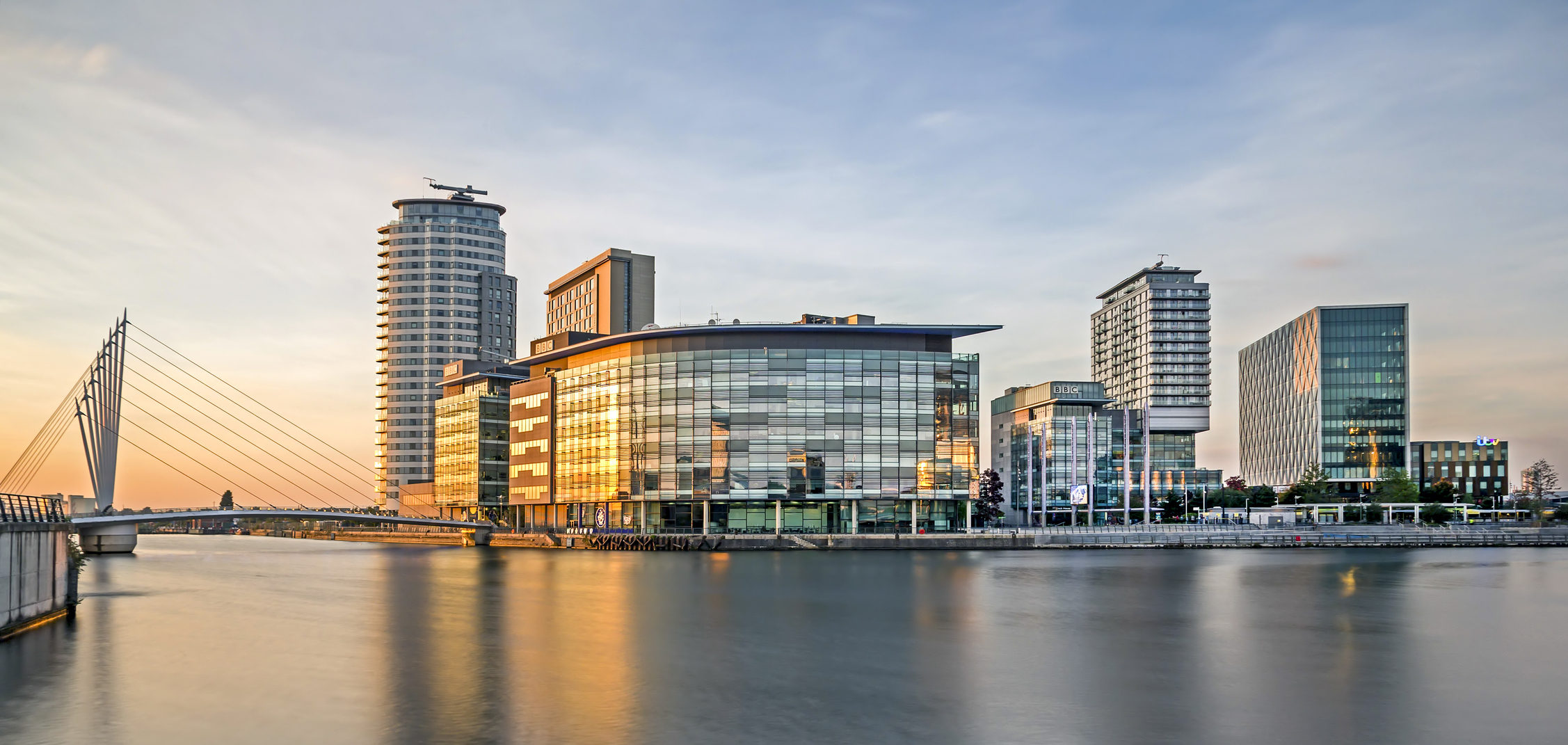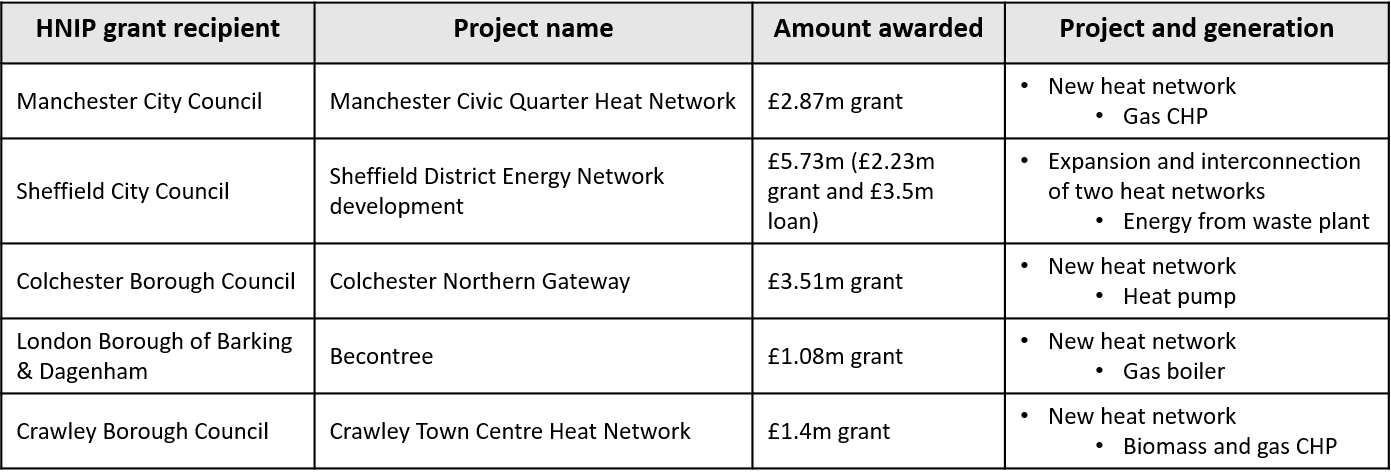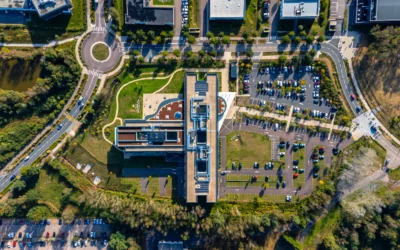
To continue the journey towards achieving 15% of heat delivered through district heating in the UK, so far 9 local authorities have received funding from the Heat Networks Investment Project (HNIP) put out through a pilot by BEIS earlier this year. Let's have a look at what is next in these projects.

Key drivers for most of the projects are to take on wider urban regeneration challenges in one go:
Until now, many local authorities have started feasibility studies but have not progressed beyond initial mapping and studying of district energy possibilities. However, the industry is pushing project owners towards ‘burying’ projects in the ground, or at least get to the design phase. Because to really prove the viability and benefit of heat networks, the first implementation stage of appropriate design is crucial. For heat networks as a secure and low-carbon supply solution, the industry will look to local authorities for reference cases.
As examples, find below a very brief overview of 5 out of the 9 grant winners.
Read more about the projects that have been rewarded funding here: https://www.gov.uk/government/publications/heat-networks-investment-project-hnip

Now that projects have received funding, tendering will soon start. Some of the projects will use procurement frameworks such as that of CEF, others might put out the job directly on one of the online portals (read more here). Also, keep an eye out for next funding rounds coming from HNIP / BEIS.
Sweden is at the forefront of decentralised heat networks technology. Our aim for “Heat Networks – Sustainability by Sweden” is to facilitate knowledge sharing between British and Swedish stakeholders and develop and encourage environmental and economic best practice.
To find out how we can help you and your organisation, please contact our London-based “Heat Networks” team. We can introduce you to leading consultants, suppliers of technology and services who will be pleased to share know-how of the development of heat network solutions.


